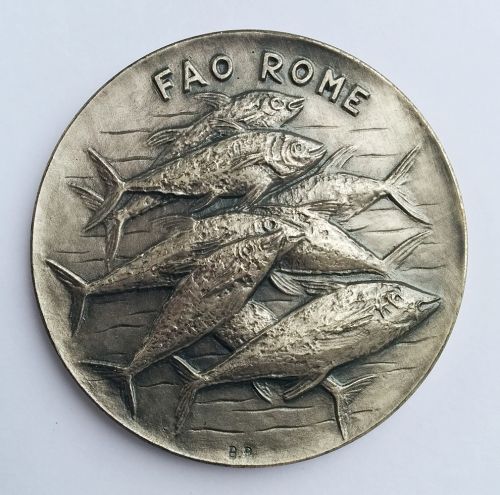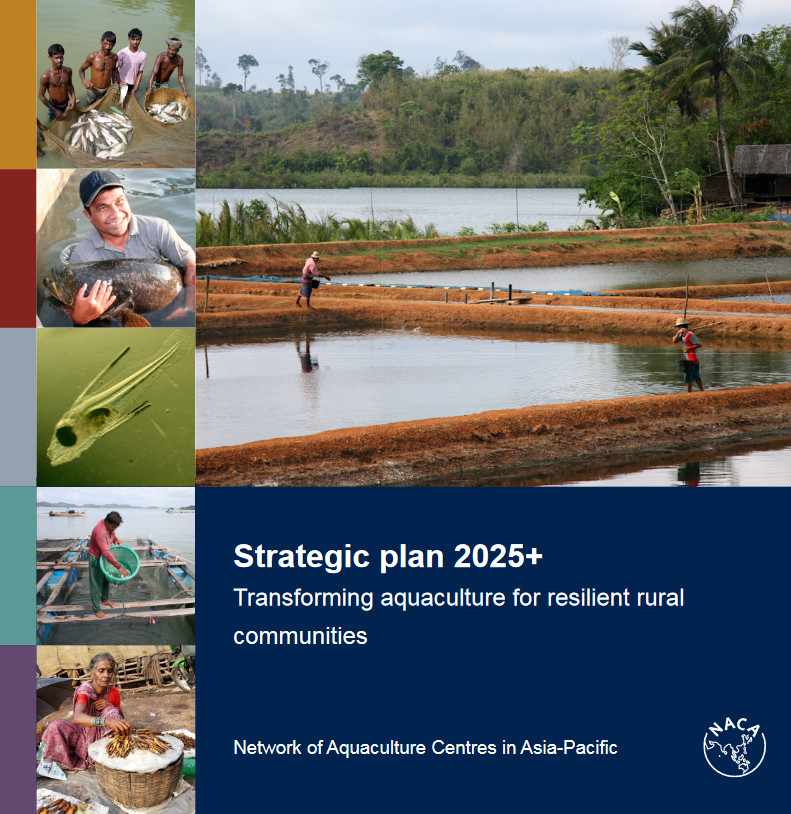About NACA
1 January 2001 | 46759 views | Governance and Policy

What it is
The Network of Aquaculture Centres in Asia-Pacific is an intergovernmental organisation that promotes rural development through sustainable aquaculture and aquatic resources management. NACA seeks to improve the livelihoods of rural people, reduce poverty and increase food security. The ultimate beneficiaries of NACA are farmers and rural communities.
How it works
NACA implements development assistance projects in partnership with research centres, governments, development agencies, farmer associations and other organisations. NACA supports technical exchange, capacity building, institutional strengthening and policies for sustainable aquaculture development and aquatic resource management.
Organisational structure
The network is coordinated and administered by a Secretariat based in Bangkok. NACA policy is determined by its Governing Council, consisting of member government representatives, which meets annually to articulate needs and set priorities. The NACA work plan is developed by a Technical Advisory Committee, formed from independent technical experts. The work plan is implemented by a network of research centres in collaboration with governments, donor agencies, farmer associations and NGOs.
Membership
Government membership of NACA is via accession to the NACA Agreement, an international treaty. The agreement also provides for associate membership by intergovernmental organisations and donor agencies.
Current member governments are Australia, Bangladesh, Cambodia, China, Hong Kong SAR China, India, Indonesia, I.R. Iran, Kingdom of Saudi Arabia, Korea (DPR), Lao PDR, Malaysia, Maldives, Myanmar, Nepal, Pakistan, Philippines, Sri Lanka, Thailand, Vietnam.
Participating centres
The core of NACA is a collaborative network of aquaculture research centres distributed throughout the region. Participating centres share their expertise and facilities for mutual benefit, to avoid duplication of effort and to maximise return on limited R&D resources. The network is also underpinned by five Regional Lead Centres, which serve as support hubs for others in the network.
Research centres that wish to formalise their participation in the network may do so via MOU with the Secretariat. Please write to [email protected] for more information about the process.
Work programmes
The mandate of NACA is addressed through five interlinked thematic work programmes that support sustainable aquaculture and aquatic resource management, policy development and inter-governmental cooperation in the region. These are:
- Environment and Sustainability.
- Health and Biosecurity.
- Genetics and Biodiversity.
- Food Security, Safety and and Certification.
- Emerging Global Issues.
Three additional cross-cutting programmes facilitate and support implementation of the thematic work programmes:
- Education and Training.
- Governance and Policy.
- Information & Networking.
Implementation
The work plan is implemented through the development of collaborative projects and activities by partners in the network, addressing issues of common or regional interest. Individual projects draw heavily on the personnel and facilities of participating centres. Projects are essentially implemented by the centres with the Secretariat acting as a coordinating body.
NACA also works in close cooperation with FAO, international donor agencies and other regional and international organisations in implementing the work plan.
Key achievements
Human resource development
NACA’s Training Programme has played a key role building regional capacity in aquaculture development. Since the early 80s, more than 2,500 people have participated in NACA’s training activities. Many alumni are now leaders and senior officials in governments, development agencies, academia and industry.
Global policy development
NACA has been at the forefront of international aquaculture policy, convening milestone consultations on development such as the Global Conference on Aquaculture Millennium +20 and producing guidance on key transboundary issues, such as the International Principles for Sustainable Shrimp Aquaculture and the Technical Guidelines on the Responsible Movement of Live Aquatic Animals.
Aquatic animal health
NACA pioneered the development of a aquatic animal health network for the Asian region, drawing together governments and technical experts to share information on the detection, containment and management of disease. The network pools technical expertise and laboratory facilities.
Better management practices
NACA has been instrumental in the development of guidelines that small-scale farmers can follow to improve crop outcomes and reduce environmental impact. BMPs are available in key production systems for shrimp, striped catfish and culture-based fisheries.
Creative Commons Attribution.
